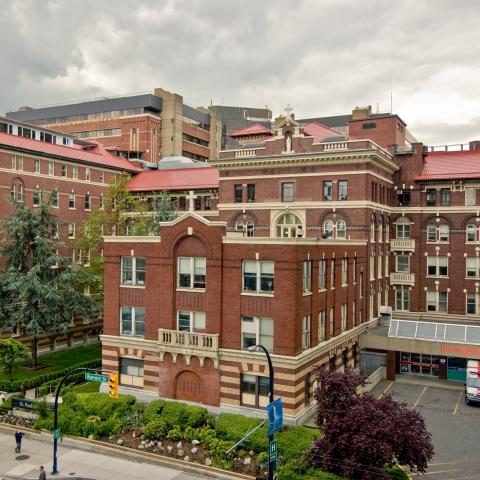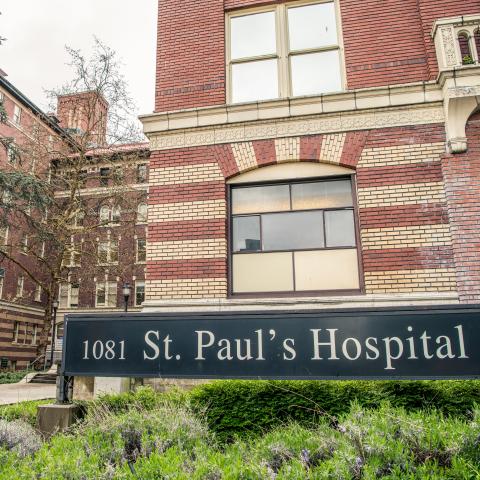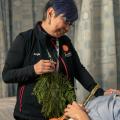Crohn's disease
An overview of Providence Health Care’s services and resources for adults living with Crohn’s disease.
Overview
Crohn’s disease is a chronic inflammatory bowel disease. It causes inflammation in the gastrointestinal tract.
Crohn's disease can occur in any part of the gastrointestinal tract. It most often impacts the small intestine and beginning of the colon.
Crohn’s disease is distinct from ulcerative colitis (UC). UC is a chronic inflammatory bowel disease that impacts the large intestine.
Many factors can aggravate Crohn's disease, but the exact cause is unknown. Since there is no cure, treatment focuses on reducing symptoms.
Contact
Pacific Gastroenterology Associates
770 – 1190 Hornby Street
Vancouver, BC, V6Z 2K5
Diagnosis & testing
There is no single diagnostic test for Crohn’s disease. If your health care provider at Providence Health Care suspects you have Crohn’s disease, they will refer you for a series of tests. This is to rule out other conditions and complications.
You will likely take lab tests, such as blood tests and stool tests.
Blood tests check for anemia. This is a condition where your body produces a lower number of healthy blood cells than normal. Blood tests also check for signs of infection and inflammation.
Stool tests look for traces of blood in your stool and signs of bacteria and parasites.
Your health care provider at Providence may schedule you for additional tests or procedures, such as:
Treatment & management
Crohn’s disease is a chronic condition, which means there is no cure.
If you are diagnosed with Crohn’s disease, we will put together a treatment plan. This is to help you manage your symptoms.
Treatment plans often include:
Clinics that treat Crohn's disease
Surgery
If diet changes and drug therapies do not improve your symptoms, you may need surgery. Approximately half of people diagnosed with Crohn’s disease eventually have surgery.
We perform intestinal and colorectal surgery at St. Paul’s Hospital Colorectal Surgery Centre.
The most common surgical procedure is a bowel resection. We remove the damaged part of your gastrointestinal tract. Then, we reconnect the healthy segments.
Surgery does not cure Crohn’s disease. The disease often reoccurs near the reconnected bowel segments.
Support services
Providence offers a variety of services to support those we care for. The following services may be of use or benefit to you and your families.
Support for Indigenous Peoples
The Indigenous Wellness Liaison Team is here to support your health journey. Team members offer cultural support and healthcare advocacy. Learn more below or call them at 604-682-2344,62937 or email IWL@providencehealth.bc.ca.
Education & resources
Patient education
Useful resources
Clinical trials & research
Advances in Crohn's disease treatments are all thanks to medical research. While participating in research is a decision you should make for yourself in consultation with your care team, there is much activity in this area so please ask us about our research programs if you’re interested.
By taking part in research, you can help us all learn more about Crohn's disease and find better ways to help people like you live and thrive with the condition. While you cannot assume benefit to yourself, your participation can make a difference in improving care for future patients.
The following clinical trials are currently enrolling volunteers. Please ask your care team for more information or contact the research team listed on each study or trial. For other information about research at Providence Health Care, please visit Providence Research.


